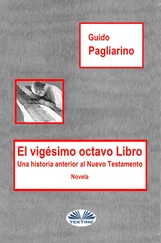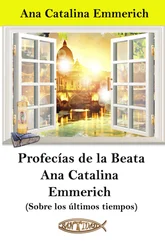Once while she was removing the bandages from my feet, I asked her why she stood there. My head was turned toward the window as she had instructed, so that I would not see the soiled underside of the bandages and the oozing lumps of raw meat that my feet had become. She was surprised that I even asked. Wasn’t that view the reason the Judge’s house had been built here? I agreed that it was a fine view, though far from spectacular. I myself used to stand there before the accident (to cover my tracks, I had begun using her tactful word for what had happened to my feet), but never as long, or as often, as she did. It was as natural for her to look at the ravine as it had been for me, she said, even if, unlike me, she had no memories attached to it. Perhaps that is why she lingered there, she said. A stone was a stone for her, and a tree was a tree. Nature was the same everywhere.
“You can look now,” she said. The fresh, white bandages gleamed in the sunlight streaming through the window. McCabe drew the gauze curtains and was gone before I realized it. Moments later I saw her splitting logs by the garden shed. Next to her was a woodpile on a pallet, half covered with the usual blue tarp. She split wood for the rest of the week, until the woodpile was gone, along with the pallet and the offensive blue tarp. I grew up with those blue tarps. They were my playpen, poncho, camping tent, and picnic blanket. Our emergency roof weighted with bricks over leaky spots by my poor, inept, beleaguered father, who bared his teeth in an obsequious grin before pushing open the service door of the “whites only” hardware store.
At the cemetery, McCabe first came back to me in snapshots seen through a gauzy curtain. Then with sound, volume, depth, motion, and emotion. She moved me, McCabe—she tore my guts out and I still did not know why. She came back as a perfect hologram, more real than real. Smell, touch, and taste were missing, but not missed. That was Mrs. Crandall’s fiefdom. I had never touched or tasted McCabe. Her smell must have been too subtle to penetrate the ample space that always separated us. The closest we had been was when she had cleaned my feet, her face about sixty inches away from mine.
McCabe also came back to me through my mouth. I inhaled her until my chest hurt. She had to return because I was holding her soul. I had not stolen it: she had given it to me. She could not live long without it. She would be like a zombie. Wherever she was, she must now be feeling the pull of my lungs. I had her essence in my possession. I did not want to keep it, or deprive her of it. I wanted to exhale it and return it to her, thankfully, lovingly, for her to have and cherish one last time before her apotheosis. I swore to protect her after the killing, to never betray her. The word “desecration” fluttered in my mind. I quashed it.
Half an hour later I caught a ride to Elmira in a pickup wreck driven by a handsome young Mexican dyke in a black heavy metal en español tee shirt. Her voice soon betrayed her as a girly, long-black-haired, smooth-faced Mexindian boy whom I thought hermaphroditical and not older than sixteen, until he told me in broken English that his wife was expecting their first. I was shocked. A baby girl-boy with a wife and kid! I thought I had misunderstood, so I made him repeat it, which he did, verbatim. He had been most alluring in his second permutation, as a hermaphroditical boy. I regretted to hear that this was not who he was, at least at present. The boy was a demon driver, careening around curves on two wheels, passing colossal live-poultry trucks within seconds of incoming traffic, and flashing his road lights at the ancient and lethargic Chevys and Buicks most white Elmirans had been reduced to driving. My head was in a whiplash with so many adjustments of real and libidinal perspective. “Where you of?” he asked me sweetly. When I answered that I was from there, he didn’t believe me. I insisted. He giggled nervously and shook his head, unsure if the joke was on him. When I persisted, with a gentle but heartfelt “Yo soy de aquí,” he got so pissed that he swerved and almost landed us in a ditch. He dumped me right there on the road, a quarter of a mile from Elmira, giving me the finger as he sped away.
A few days later, I was in the kitchen when an unknown car pulled into the driveway. Its chassis was as putrid as Saint Lazarus’ skin. I grabbed a kitchen knife. Then I saw Petrona get out, and circle the car several times like a mad hen, opening her mouth wide and gesticulating. The kitchen windows were shut. No sounds came through. The sun was beginning to rise.
Petrona came running into the kitchen. She let out a whimper and clutched her heart with her right hand when she saw me standing by the sink. I had put away the knife and pasted a Mary Mother of Christians smile on my face, suspecting what was coming. (Why is it that we spics clutch our hearts at the least provocation: joy, terror, surprise, disappointment, sadness, hope, etcetera?) When Petrona stopped wheezing, she regurgitated a convoluted stream of Spanish words on the subjects of loyalty, duty, gratitude, sorrow, regret. She spoke in the neutral third person: “uno,” one. It was not Petrona, but one, who regretted being forced by circumstances beyond one’s control to suddenly quit. It was not I who “one” was leaving in the lurch, but “the fellow human being.” One was doing so not out of disloyalty or lack of consideration. Not without pain, since one was pained ( “A uno le da pena, señora, mucha pena,” she bleated) because the fellow human being needed one to eat properly, wear clean clothes, sleep in an orderly house. Not without anguish ( “Uno siente angustia al dejar al prójimo aquí en estas condiciones tan tristes,” she wailed). Petrona, whose known vocabulary had hovered around twenty Spanish words, who never spoke unless spoken to, who, when forced to answer by the unspoken threat of dismissal ever present between housemistress and maid did so stingily, sourly, drawing a clear moral line between obedience under duress and willing cooperation, Petrona was now a flood of words, unstoppable. She was scared. Bug-eyed, piss-in-pants, shitless scared. I was afraid she’d have a heart attack and drop dead in the kitchen. “Petrona! Shut up,” I said in English, in the firm tone of a dog trainer’s “heel.” She stopped and sat down. “Is la migra after you?” She shook her head, “No, señora, no. No es la migra.” Then who? I cooed. Petrona began to cry. She threw herself on her knees, begging me to let her go. When I tried to help her up, she clung to my legs, leaving a trail of tears and mucus on my freshly pressed pants. I told her she could go, but that was not enough. I had to tell her that I wanted her to go for her own good, and mine, that no offense was taken or given, that I would have told her to go today even if she had not told me first that she had to go. I gave her a month’s wages for the road, and walked her to her car, consoling her for her treachery.
The tailpipe barely cleared the road under the weight of children, mattresses, chairs, and impractical black iron pots—undoubtedly precious heirlooms—lovingly strapped to the passenger seat. A shriveled tobacco-colored man shared the back seat with four or five children (they were hard to count through the steamed windows). He appeared to doze while the little ones jumped and fought around him in atrocious Elmira-twanged Spanglish. I did not know that Petrona had a family. Were these her children? Could they be siblings, and the old man their grandfather? I fought against the repulsive suspicion that he might be her husband. I wished Petrona a good trip. “Cuídese, señora,” were her last words. Take care, or beware—depending on intonation, facial expression, body language, and context. Beware, or take care. I could not tell which.
Читать дальше












